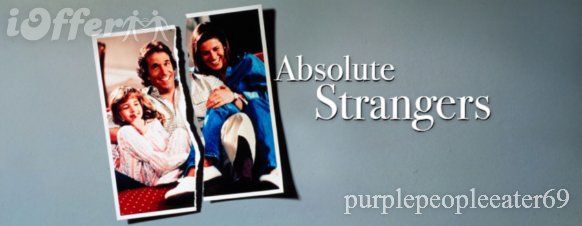
ABSOLUTE STRANGERS
US, 1991, 88 minutes, Colour.
Henry Winkler, Jennifer Hetrick, Karl Malden, Audra Lindley, Richard Kiley, Patty Duke.
Directed by Gilbert Cates.
Absolute Strangers is a good telemovie, quite confronting in its moral issues and its treatment. Based on a true story, it shows the dilemmas of a husband who loves his wife, who is injured in a car accident and goes into coma, who is pregnant. The advice is that she be aborted so that she has a better chance of living. Questions of abortion, constitutional American rights are explored in debate. The film takes a pro- choice stance. The film also shows pro-life groups and right to lifers as fanatics and intervening unduly (absolute strangers) And wanting to take custody of the comatose wife and the child.
The film explores American constitutional rights and legal issues in the aftermath of the 70s case of Roe versus Wade (also made an Emmy winning telemovie in 1989 starring Holly Hunter and Amy Madigan). Henry Winkler performs as the husband. Patty Duke appears as a judge. The victims ,parents are played by Karl Malden and Audra Lindley. The film shows the power of the American telemovie with social issues when it is well written (by playwright Robert Anderson) and well directed (by Gilbert Cates). It is not an easy film and could well divide its audience with its moral stance.
1. The impact of telemovies with social issues? Based on true stories?
2. New York state, environment, homes, city, people? The musical score?
3. The screenplay stances towards life, abortion, pro-choice, pro-life? Bias or unbiased?
4. The moral perspectives of the audience in interaction with the screenplay. The role of the film as presenting arguments and stories to illustrate different perspectives?
5. The setting, Marty and Nancy and their happy home, work, their daughter, life-style?
6. The accident and Nancy going into a coma, the hospital sequences, the comatose sequences? Her pregnancy, the range of treatments, the doctors discussions, the chances of her survival? The issue of the foetus to be aborted? The final captions and the indication that after the abortion she survived and the quality of her life in the aftermath?
7. Marty as a quiet man, the impact of the news, going to the hospital, his relationship with his daughter, telling her the truth? The support of his friends? The sequences indicating the bonds of friendship? His mother and her support? Nancy's parents (previously seen with their daughter in the videos)? their concern? Marty and his discussion with the doctors, the obstetrician? The clarity of the issue,, his choices, his decision for Nancy's life?
8. The good friends, their support and advice? Her parents, their care, the father's anger, support?
9. The portrayal of the doctors, the information, physical and psychological dangers, moral issues, the performing of abortions, the time?
10. The courts, the custody discussions, the judge and her observations? decisions and rights?
11. The pro-life characters, the way they were presented, zealous, absolute strangers? Present in the court, their requests for custody, their techniques, lawyers? Going to higher courts? Seen as an intrusion? Their power of lawyers and judges? Lobbying? Marty and his anger? His outburst in the court? His own lawyers and their understanding, support, information?
12. The deadlines, the appeals? Nancy going to surgery? The repercussions?
13. The press, the pressure on Marty to go on the M. show, his anger At the pro-lifers? The T.V. show, the pro-lifers and their arguments? His own pleading?
14. The ambiguity and complexity of issues of abortion, the preservation of the life of the mother? Pro-life, pro-choice?